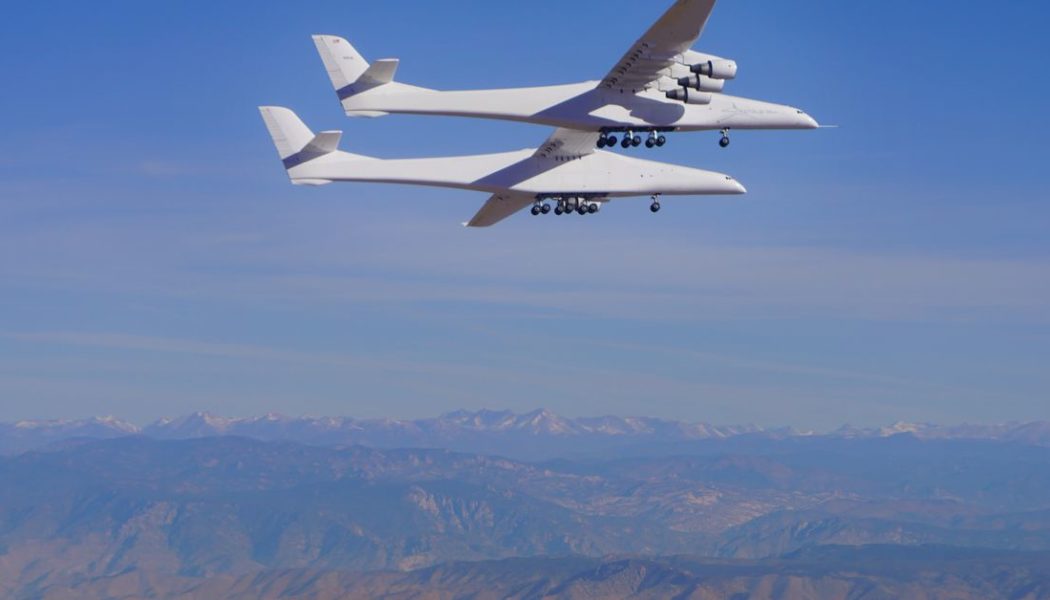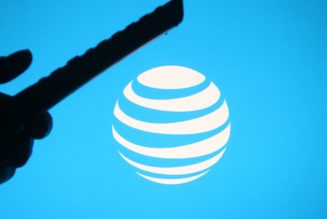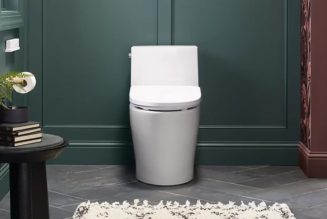
Stratolaunch, the aerospace firm founded by the late Microsoft co-founder Paul Allen, flew its behemoth carrier airplane named ‘Roc’ on Thursday for a second time. It was the company’s first flight under new ownership, coming two years after the twin-fuselage craft’s initial flight test.
“Today’s flight, at first review, has appeared extremely successful,” Stratolaunch’s chief operating officer Zachary Krevor told reporters in a call on Thursday. “We accomplished all test points as desired, we have not seen anything anomalous, and we are very pleased with the condition of the aircraft upon landing.”
Roc’s wheels were up at 10:30AM ET, and the plane reached a peak altitude of 2.6 miles over the Mojave Desert in California, Stratolaunch wrote in a press release. The flight, powered by six engines, lasted three hours and 14 minutes before Roc touched down on a gigantic runway at the Mojave Air and Space Port. The flight lasted longer than its first outing in 2019, but the craft flew slightly lower. One side of the plane landed just before the other.
“The air crew did an excellent job of bringing the aircraft down according to our expected crosswind procedures,” Krevor said. Roc’s test flight was designed to see how the plane handles cabin pressurization, and test safety features and some new hardware upgrades since its last test flight.
The carrier plane’s wingspan is 385 feet — nearly twice the width of a Boeing 747, making it the world’s largest aircraft by wingspan. It’s designed to eventually carry Stratolaunch’s fully reusable and autonomous Talon-A hypersonic vehicle — a rocket-powered, jet-shaped craft measuring 28 feet long and 14 feet wide that is designed to serve as a hypersonic testbed for the Department of Defense.
Once deployed, Talon A will ignite its liquid-fueled rocket engine to boost itself higher in Earth’s atmosphere for roughly a minute of hypersonic flight test conditions. It glides back for an autonomous landing on a conventional runway.
No such Talon-A was on board Roc for Thursday’s test flight, however. The company’s chief technology officer, Daniel Millman, told reporters that Roc will soar higher and faster in test flights over the next year until it can prove itself capable of hitting the right flight conditions required to drop Talon-A. “That will happen later in the year,” Millman said.
Stratolaunch scaled back operations, laid off most of its employees and axed plans for a fleet of air-launched rockets following the death of its billionaire founder Paul Allen in October 2018. The company kept enough employees on board to manage the carrier aircraft’s debut flight, which occurred in April 2019. Stratolaunch went dark for more than a year after that. It eventually found new funding and rehired some employees to revive its carrier plane test program and refocus its business on hypersonic testing.
Today’s flight of Roc, named after the large and legendary bird of prey in Middle Eastern mythology, was the culmination of that revival.










